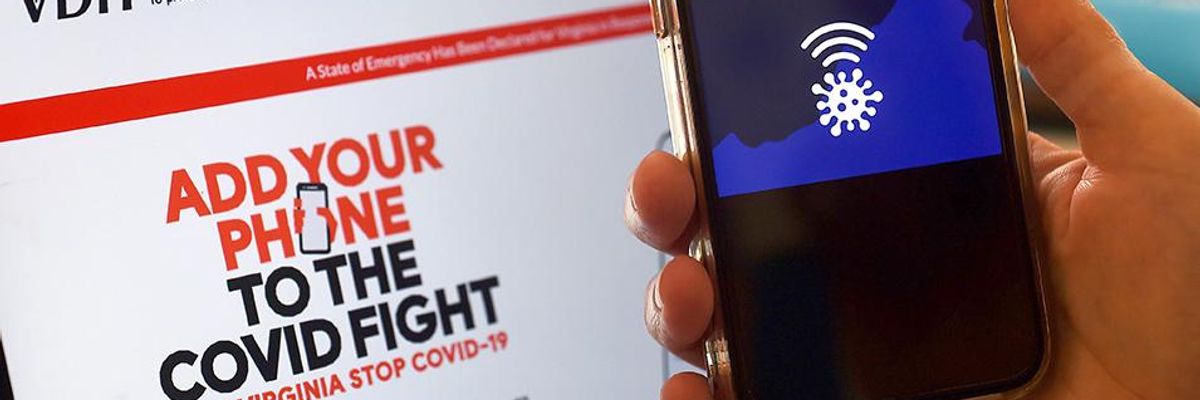As states continue to reopen amid the Covid-19 pandemic and employers adjust to remote work routines, government watchdog Public Citizen warned in a new report Thursday that workers' rights and civil liberties must be taken into account so that contact tracing technologies do not threaten to become a form of "dystopian mass surveillance" aimed at workers.
"In a work setting, where activities are governed by a contractual or power relationship, many workers either must accept the new high-tech workplace surveillance or risk losing their jobs," Public Citizen said in a statement.
In addition, Public Citizen noted that not all Covid-19 contact-tracing apps are created equal, with some falling outside the purview of the Health Insurance Portability and Accountability Act (HIPAA), for example.
There are at least three bills proposed by lawmakers in Congress that look to address these concerns, one of which is a bipartisan bill aimed at curtailing employer overreach into workforce data.
"As we continue to confront the coronavirus pandemic, Americans should not have to worry about the privacy and security of their personal health data," Sen. Amy Klobuchar (D-Minn.), a main sponsor of the Exposure Notification Privacy Act said when the bill was introduced in early June. "While contact tracing can play a critical role in helping prevent the spread of the coronavirus, this crucial innovation cannot come at the expense of consumers' privacy."
But while Congress debates legislation, the report (pdf) by Public Citizen warned, some employers have already opted to use Covid-19 contact tracing apps. The watchdog found at least 32 employers are using apps to trace at least 340,000 wokers, and the technology is avilable to as many as 14,000 additional employers with an additional 4 million workers.
"These technologies are putting workers' rights in jeopardy by tracking, monitoring and collecting personal data--including health data--and sharing it with employers, creating new cybersecurity risks," the report noted.
The state of Virigina unvieled the first statewide Covid-19 tracking app in early August, and reports indicate Arizona may be next in line.
Still, Public Citizen urges strong oversight of the technology as it continues to roll out.
"Without sufficient government regulation and guidelines, employers using these technologies are invading workers' privacy to varying degrees," the group said.
